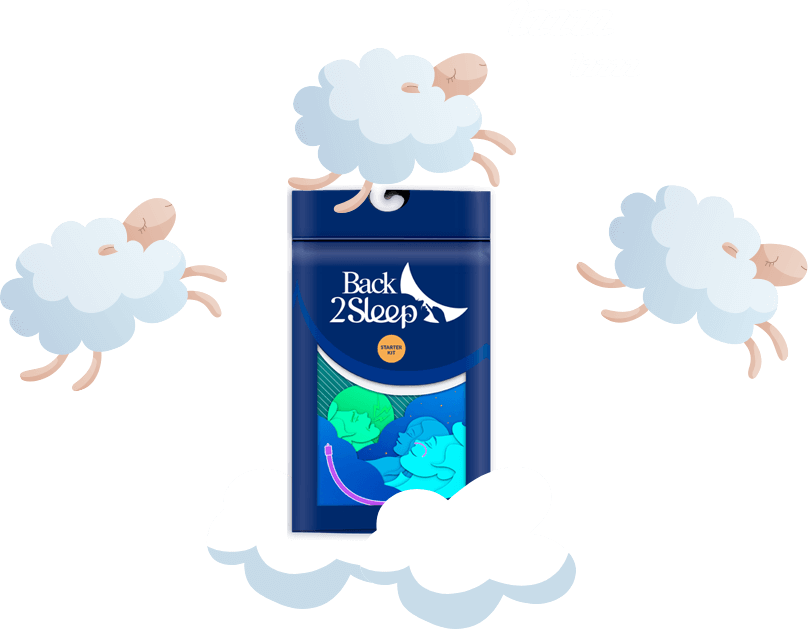Blocked sinuses, medically known as nasal obstruction, are a common complaint resulting from inflammation of the nasal mucosa. This symptom is often caused by an excessive build-up of mucus in the nasal cavity, impeding normal airflow. Various factors can lead to nasal congestion: allergic rhinitis due to pollen or dust mites, viral infections such as influenza or the common cold, and sinusitis, whether acute or chronic.
The respiratory tract, particularly the nasal passages, plays a crucial role in breathing. When these passages become blocked, mouth breathing and even snoring can occur during sleep. In some cases, sinus infections can occur, often of bacterial or viral origin. Sinusitis can affect different areas, such as the maxillary or ethmoid sinuses.

Blocked sinuses: the causes
A blocked sinus can have a variety of causes, from simple irritation to more complex pathologies . Let's take a look at the five main reasons for this inconvenience:
Irritation: Elements such as dry ambient air, seasonal pollen allergies or the side effects of frequent use of decongestant nasal sprays can be a source of irritation. These factors lead to inflammation of the nasal mucosa, resulting in persistent nasal discharge and the constant sensation of a blocked nose. The allergic rhinitiscan be triggered by various allergens such as dust, animal hair or mold.
Infections : Infections, whether viral or bacterial, are a major cause of blocked sinuses. Symptoms often include headaches, loss of smell, nasal discharge and even fever. In some cases, acute rhinopharyngitis or sinusitis may be involved, sometimes requiring medical treatment with antibiotics.
Structural anomalies : A deviated nasal septum, whether congenital or caused by trauma, can compromise nasal breathing. These anomalies can affect different parts of the nasal cavity, including the nasal valve or the bones. In severe cases, surgery may be required to restore normal breathing.
Polyps: These are growths that form in the nasal cavity or sinuses. Sometimes the result of chronic inflammation or nasal polyposis, these polyps can obstruct the airways, making breathing difficult.
Serious conditions : In rare cases, malignant tumors can cause a blocked sinus. It is therefore essential to consult an ENT specialist for a clinical examination, especially if symptoms persist or worsen.
Clogged sinuses: the consequences
Whether it's acute or chronic sinusitis , the symptoms are often similar. Typical symptoms include a blocked or constantly runnynose,frequent sneezing, thick , malodorous nasal secretions with a yellow tinge, and pronounced facial congestion. These symptoms are often accompanied by headaches, fatigue, high fever and sometimes even a persistent cough.
An obstructed sinus can have more complex repercussions. For example, an accumulation of pus in the nasal cavities can develop, making breathing difficult and causing an oppressive sensation of congestion. What's more, this can lead to complications such as bad breath or even dental pain.
It's crucial to note that if these symptoms are not properly treated, severe complications can arise. These complications, although fairly rare, include pathologies such as thrombophlebitis of the orbital veins, more severe infections such as meningitis, osteomyelitis of the frontal bones, or the formation of a brain abscess.
In the event of such manifestations, it's essential to consult an ear, nose and throat specialist to establish a precise diagnosis, especially if you suffer from prolonged nasal symptoms. Good nasal hygiene, such as using a saline solution or nasal spray, can also help prevent or relieve some of these symptoms.

Clogged sinuses: light remedies
In the face of sinusitis, whether frontal, maxillary or chronic, it's common to experience blocked nostrils, difficulty breathing, a persistent headache and sometimes even dizziness. Symptoms can worsen, especially at night, when the nose runs non-stop or mucus gets stuck in the sinuses, causing uncomfortable pressure. However, various natural remedies can offer considerable relief.
First of all, hydration is essential. Drinking water regularly, about 235ml every two hours, helps flush viruses and other germs from the body. Chicken broth with vegetables is an ancient and effective remedy, as is ginger tea with honey, which helps combat inflammation of the pharynx and bronchi. Bone broth soothes irritated mucous membranes and provides beneficial minerals. Garlic and onions, known for boosting the immunesystem, are excellent allies against colds and sinusitis. In addition, a mixture of horseradish and lemon helps to quickly clear nasal passages, reducing the feeling of congestion.
More specific remedies, such as inhalation of oregano oil, rich in thymol and carvacrol, have powerful antimycotic and antibacterial properties. Added to boiling water, this oil releases vapors that decongest blocked sinuses. Grapefruit seed extract is also a wise choice for its antiviral action.
Essential oils also offer an effective remedy. Peppermint and eucalyptus, for example, not only help combat headaches but also naturally open up the sinuses. A nasal spray based on essential oil or saline solution can be useful for moisturizing and clearing the nostrils. It's important to note, however, that certain foods should be avoided, such as sugar, dairy products and refined flour, which can aggravate symptoms or delay healing.

Clogged sinuses: heavy-duty solutions
When the sinus is obstructed and traditional methods fail to provide relief, more extensive surgery (after consultation with the doctor) may be considered. Usually performed under general anesthesia, these surgical procedures target the inside of the nose and sinuses. A common cause of blocked sinuses is a deviated septum. Thanks to technological advances, surgical treatment, such as endoscopic surgery, allows effective correction. The procedure involves making a tiny incision in the nostril, gently peeling back the mucous membrane from the septum and repositioning the latter in a median position.
Other symptoms of the common cold or chronic sinusitis may require volume reduction of the lower turbinates. Two main techniques are commonly used: turbinoplasty and turbinectomy. Occasionally, a viral infection or superinfection can lead to inflammation of the sinuses, necessitating a meatotomy or ethmoidectomy.
Apart from these interventions, other treatments can help. Some patients find relief with medication prescribed by a specialist, such as corticosteroids or antihistamines for those suffering from allergies or chronic rhinitis. However, it is essential to remain alert to side effects and always consult a doctor before starting any treatment.
Complications, such as nasal polyps or blocked sinusitis, may require immediate medical attention. So it's crucial to listen to your body and seek medical help if symptoms persist, especially if the sinus is blocked at night or intense headaches occur.
Two operations are performed for this purpose, namely turbinoplasty and turbinectomy. Sinus surgery can also treat a blocked sinus. The meatotomy, the ethmoidectomy are rather heavy medical solutions. The clogged sinus is easily treated with homeopathy. Taking medicine prescribed by a doctor can be a great way to feel better.
- Choosing a selection results in a full page refresh.
- Opens in a new window.







